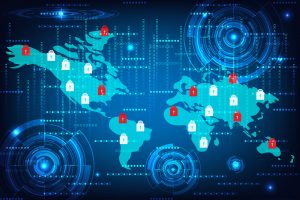
U.S. House Foreign Affairs Committee Ranking Member Michael McCaul (R-TX) and U.S. Rep. Adam Kinzinger (R-IL) on Feb. 23 proposed legislation to support United States international cyber diplomacy.
“This is a bipartisan bill,” Rep. McCaul said, “because promoting freedom and democratic ideals isn’t a Republican issue or a Democrat issue — it’s an American issue.”
Rep. McCaul sponsored the Cyber Diplomacy Act of 2021, H.R. 1251, with five original cosponsors, including Rep. Kinzinger, U.S. Rep. Mike Gallagher (R-WI), and U.S. Rep. Gregory Meeks (D-NY), to ensure that the U.S. State Department opens the Office of International Cyberspace Policy to advocate for America’s democratic ideals in global cyberspace, according to the congressmen.
“The United States must lead the way in creating a free and secure internet global space to stop authoritarian regimes, like those in Russia and China, from censoring the truth,” said Rep. McCaul. “The State Department must have the necessary resources and abilities to push back against any malign activities from our adversaries.”
If enacted, H.R. 1251 would state that U.S. International Cyberspace Policy is to “work internationally to promote an open, interoperable, reliable, unfettered, and secure internet governed by the multi-stakeholder model, which (1) promotes human rights, democracy, and rule of law, including freedom of expression, innovation, communication, and economic prosperity; and (2) respects privacy and guards against deception, fraud, and theft,” according to the text of the bill.
In implementing the policy, the legislation would call on the U.S. president, in consultation with outside actors, including private-sector companies, nongovernmental organizations, security researchers, and other relevant stakeholders, to pursue several objectives. Those would include clarifying the applicability of international laws and norms to the use of information and communications technology, and reducing and limiting the risk of escalation and retaliation in cyberspace, damage to critical infrastructure, and other malicious cyber activity that could impair critical infrastructure that provides services to the public, according to the bill’s text.
“Freedom of speech and information on the internet are both essential in promoting democracy and human rights around the world. Unfortunately, these tools are under assault by the Russian Federation, the People’s Republic of China, and other malign actors,” Rep. Kinzinger said. “As such, the United States must act.”
Rep. Kinzinger noted that “only through a coordinated effort will we push back against Russian misinformation and China’s attempts to stifle democracy in Hong Kong.”



